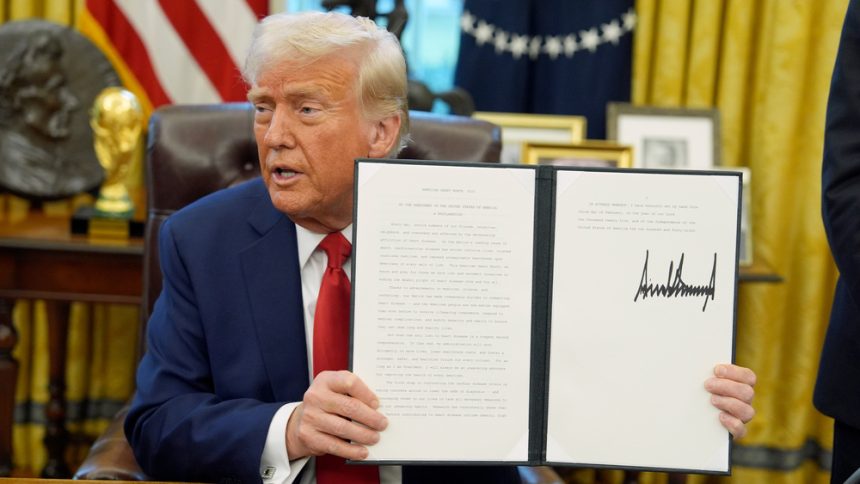In a surprising move that could reshape U.S. economic policy and tech strategy, President Donald Trump has signed an executive order to establish a sovereign wealth fund within the next year. The new fund, which Trump claims will “create a lot of wealth for the fund,” is being positioned as a tool to finance major national projects—and could even be used to buy the popular short video app TikTok.
The announcement came as part of the administration’s broader push to bolster American economic assets. Traditionally, sovereign wealth funds are built on budget surpluses, but the U.S. government currently operates at a deficit. As such, the mechanism for funding this new venture remains unclear and will likely require Congressional approval.
During a press briefing, President Trump stated, “I think it’s about time that this country had a sovereign wealth fund.” He recalled that during his presidential campaign he had long advocated for such a mechanism, envisioning it as a means to fund “great national endeavours” such as infrastructure projects, including highways, airports, and even investments in manufacturing and medical research.
Treasury Secretary Scott Bessent further elaborated that the fund is expected to be operational within the next 12 months. “We’re going to monetize the asset side of the U.S. balance sheet for the American people,” Bessent said, hinting at a diverse mix of liquid assets and other resources that will underpin the fund.
The concept of a U.S. sovereign wealth fund is not entirely new; sources revealed that the Biden administration had also considered the idea prior to Trump’s election. Globally, over 90 such funds manage assets totaling more than $8 trillion, underscoring the potential impact of this initiative on the national and international stage.
In an unexpected twist, President Trump suggested that the fund could be used to acquire TikTok, an app with around 170 million American users whose future in the United States remains uncertain. TikTok, owned by the Chinese company ByteDance, has been under intense scrutiny following a law passed on January 19 that requires its owner to divest U.S. operations on national security grounds or face a ban. Trump’s executive order to delay the law’s enforcement by 75 days provided further fuel for speculation about his plans for the app.
While details about the fund’s structure and financing are still emerging, the move has already sparked considerable debate among financial and technology experts. Critics question how the fund will be sustained given the U.S. fiscal landscape, while proponents hail it as a bold step toward harnessing the nation’s economic potential.
As discussions continue, the Trump administration is expected to provide further clarity on both the operational mechanics of the fund and its potential role in reshaping American investment strategies, including its highly anticipated foray into the tech sector.




